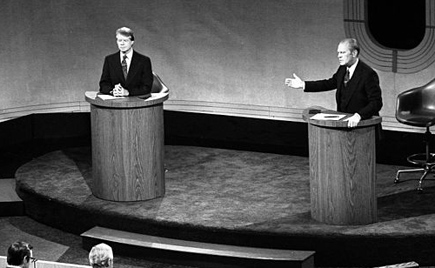This week in the first year
 White House Photograph Courtesy Gerald R. Ford Library
White House Photograph Courtesy Gerald R. Ford Library
On January 21, 1977, one day after his inauguration as president, Jimmy Carter issued a proclamation to pardon Vietnam War draft evaders. The pardon only applied to civilians who violated the Military Selective Service Act and evaded being drafted into the U.S. military. It did not apply to people who joined the military and then went absent without leave (AWOL) or had been dishonorably discharged.
The Vietnam War was divisive with more Americans questioning the U.S. role in the war the longer it was fought. Some young men fled to Canada and other countries rather than be drafted into the U.S. military to fight in Vietnam. Carter’s pardon made it possible for them to apply for a pardon and return to the United States without being prosecuted for evading the draft.
Carter had pledged to pardon Vietnam War draft evaders during the presidential campaign. During the first debate with President Gerald Ford, Carter said,
“As a matter of fact now, I don't advocate amnesty; I advocate pardon. There is a difference, in my opinion, and in accordance with the ruling of the Supreme Court and in accordance with the definition in the dictionary. Amnesty means that what you did was right. Pardon means that what you did, whether it's right or wrong, you are forgiven for it. And I do advocate a pardon for draft evaders. …But I think that now is the time to heal our country after the Vietnam war.”
Many Americans supported Carter’s pardon for draft evaders, arguing that it allowed the country to move forward and leave the memories of an unpopular war behind. However, others felt that the pardon was a disservice to those men who fought and died in the Vietnam War. Still others thought the Carter’s pardon did not go far enough because it did not apply to deserters.
Watch ABC’s News coverage of Carter’s pardon of draft evaders.
"This week in the first year" is an occasional series that highlights significant events in the first year of a presidential administration.